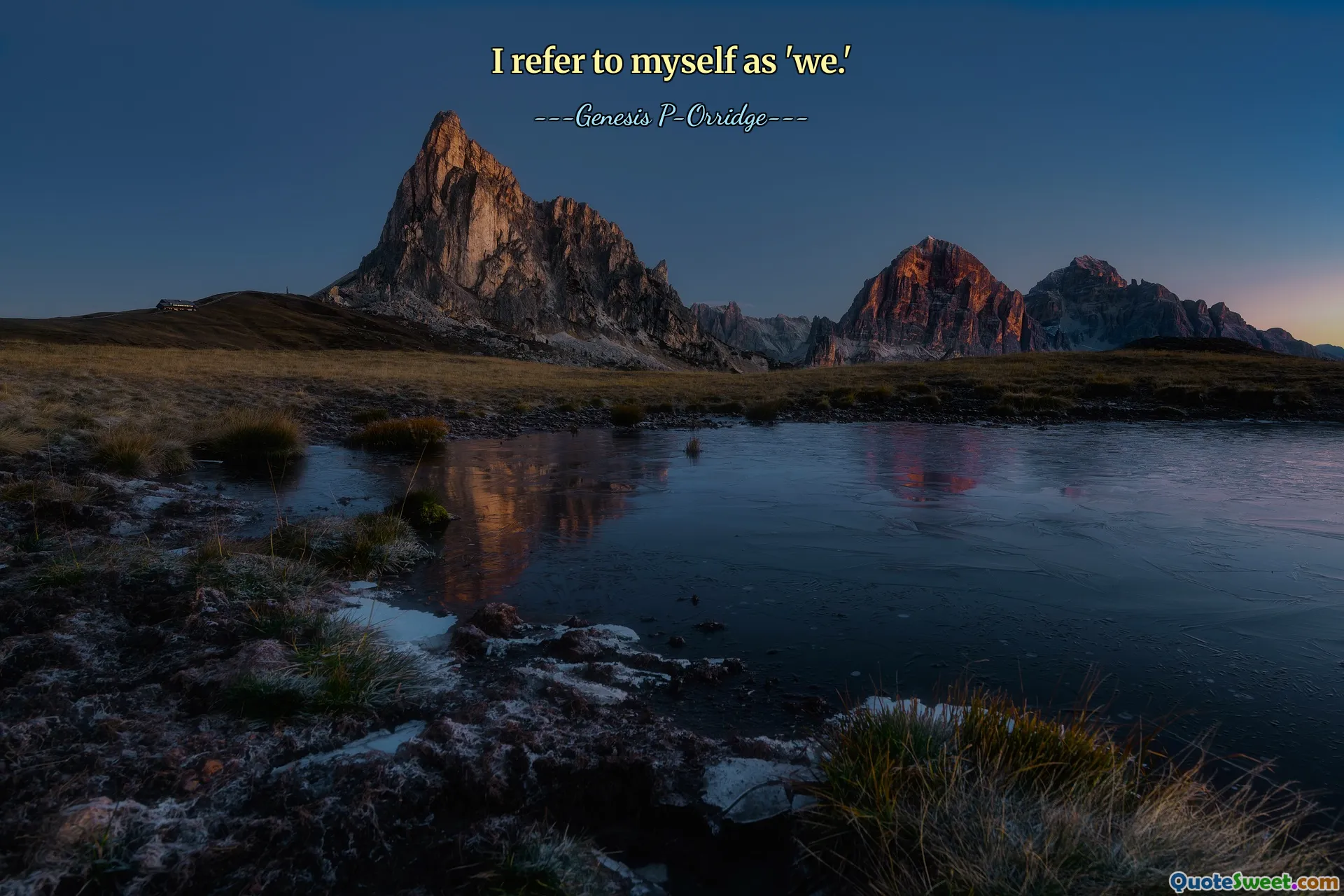
I refer to myself as 'we.'
This quote highlights the fluidity of identity and the complex nature of self-perception. When someone refers to themselves using the plural 'we,' it suggests a sense of unity with others, possibly indicating that the individual sees themselves as part of a collective consciousness or values community over individualism. This perspective can stem from various philosophical, spiritual, or psychological viewpoints, emphasizing interconnectedness and shared experience.
In a broader context, adopting a 'we' rather than an 'I' can also reflect a stance against ego-centric thinking. It challenges the conventional notion of the isolated individual, inviting us to consider our identities as intertwined with others. Such thinking can promote empathy, collaboration, and a sense of belonging. It also encourages recognizing that individual identity is often shaped by social, cultural, and relational factors rather than existing as a standalone entity.
In a personal sense, embracing a collective identity may serve as a source of strength, comfort, and affirmation, especially in times of hardship or change. It invites reflection on how much of who we are is constructed through relationships and collective experiences. For some, this might also be a spiritual acknowledgment of a universal consciousness or divine presence.
Overall, the choice to refer to oneself as 'we' rather than 'I' can be a profound declaration of interconnectedness and humility, emphasizing that human experience is often a shared journey, and our identities are, in part, woven from our relationships and communal bonds.
---Genesis P-Orridge---











